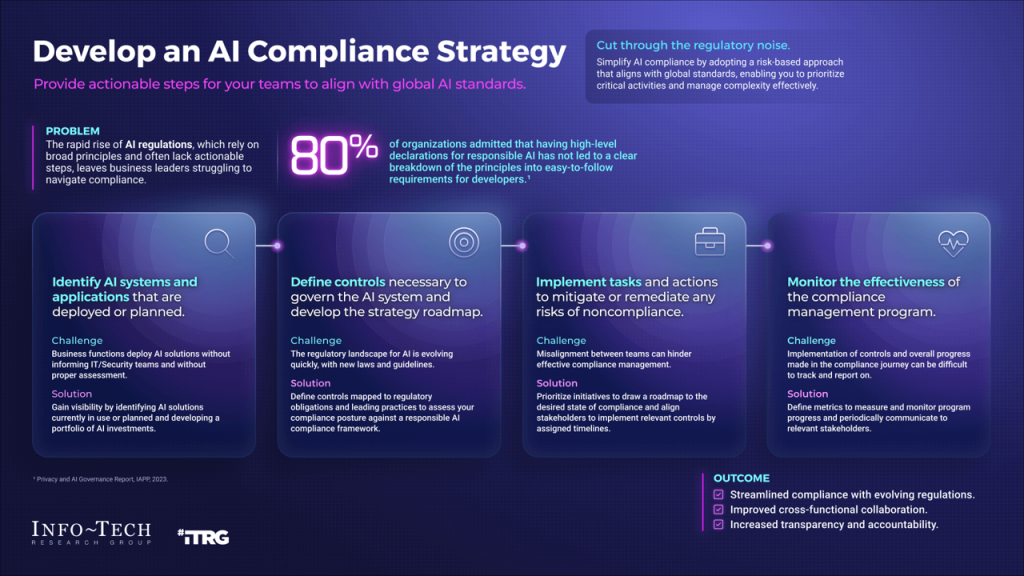AI Business Compliance: Navigating the Regulatory Landscape

Artificial intelligence (AI) is transforming how businesses operate, innovate, and interact with customers. From predictive analytics in finance to personalized recommendations in retail, AI systems increasingly influence critical business decisions. However, as AI adoption grows, so does regulatory scrutiny. AI business compliance has become a cornerstone for organizations seeking to balance innovation with legal, ethical, and operational responsibilities. Ensuring that AI systems comply with applicable laws, industry standards, and ethical guidelines is no longer optional; it is essential for sustainable growth and risk mitigation.
Understanding AI Business Compliance
What Is AI Compliance?
AI compliance encompasses the policies, processes, and technical controls organizations implement to ensure their AI systems operate lawfully, ethically, and responsibly. It addresses multiple dimensions, including:
- Data Privacy: Handling sensitive personal and corporate data in accordance with regulations such as GDPR, CCPA, and HIPAA.
- Transparency: Providing clear explanations of AI decision-making processes so that stakeholders understand outcomes.
- Accountability: Assigning responsibility for AI-driven decisions and errors.
- Fairness: Mitigating algorithmic bias and promoting equitable treatment of all users.
- Security: Ensuring AI systems are resilient against cyber threats and data breaches.
AI compliance is not limited to avoiding penalties; it also supports trust, operational efficiency, and the responsible adoption of AI technologies.
Why AI Compliance Matters
The importance of AI compliance can be seen from several perspectives:
- Legal Protection: Non-compliance can result in substantial fines, litigation, or regulatory sanctions. In financial services, for instance, failing to capture or monitor communications through solutions like iMessage compliance recording can lead to severe consequences under MiFID II and other regulations.
- Trust Building: Transparency and ethical AI practices enhance consumer confidence, which is critical when AI systems influence personal or financial decisions.
- Operational Efficiency: Implementing compliance frameworks ensures standardized processes, reduces errors, and improves governance.
- Market Access: Many markets now require demonstrable AI compliance, and organizations that fail to meet standards may be barred from participating.
Proactively adopting compliance practices also positions businesses as responsible innovators, which can differentiate them in competitive industries.
Key Regulations Shaping AI Compliance
European Union: The AI Act
The EU’s AI Act introduces a risk-based classification system for AI applications:
- Unacceptable Risk: AI applications like mass social scoring or manipulative behavioral models are prohibited.
- High Risk: Includes critical infrastructure, biometric identification, and certain healthcare and financial AI systems. High-risk systems must meet strict standards, including risk assessments and mitigation measures.
- Limited Risk: Requires transparency obligations, such as informing users when interacting with AI systems.
- Minimal Risk: Systems like AI-powered video games generally face minimal regulatory requirements.
Organizations deploying AI in the EU must implement comprehensive risk assessment protocols, maintain records, and ensure transparency in algorithms and decision-making processes.
United States: California’s SB 53
California’s SB 53 requires large AI companies to disclose safety protocols and report critical incidents. Specifically, companies with annual revenue exceeding $500 million must conduct risk assessments and make certain findings public. Penalties for non-compliance can reach $1 million per violation. Beyond California, U.S. AI regulation is often sector-specific, requiring compliance with laws from the FDA for healthcare AI to the SEC and FINRA for financial services.
United Kingdom: AI Governance Framework
The UK framework emphasizes ethical AI deployment and innovation-friendly regulation:
- Ethical AI: Organizations must address fairness, accountability, and transparency.
- Data Protection: Compliance with GDPR remains a key requirement.
- Innovation Balance: Regulation seeks to prevent harm without stifling AI development.
Compliance in the UK often involves proactive engagement with regulators and maintaining detailed records of AI system development and decision-making processes.

Implementing AI Compliance in Business Operations
1. Establish a Compliance Framework
A strong framework ensures all organizational activities involving AI are governed by clear rules:
- Governance Structures: Define roles and responsibilities for compliance, including appointing AI ethics officers or committees.
- Policies and Procedures: Establish protocols for data collection, model training, validation, and deployment.
- Employee Training: Educate staff on legal requirements, ethical considerations, and the technical aspects of AI compliance.
Frameworks must be dynamic, adapting to new regulations, technologies, and emerging risks.
2. Conduct Regular Audits
Audits provide actionable insights into AI compliance and risk management:
- Compliance Gaps: Identifying where policies are insufficient or outdated.
- Risk Identification: Highlighting vulnerabilities in algorithms, data pipelines, or decision-making.
- Process Improvement: Suggesting refinements to enhance accuracy, fairness, and traceability.
Audits may include automated testing of AI outputs, reviewing model training data, and inspecting internal communication records.
3. Implement Monitoring Tools
Technological tools play a pivotal role in ongoing compliance:
- MCP Servers: Organizations can use the BigQuery MCP server to monitor data integrity, query execution, and schema compliance, ensuring AI systems rely on accurate, validated datasets.
- AI Monitoring Platforms: Real-time dashboards track algorithmic performance, detect bias, and trigger alerts for unusual activity.
- Communication Compliance: Tools for monitoring internal messaging ensure regulatory adherence in industries like finance.
Automation through monitoring tools reduces manual oversight while increasing reliability and traceability.
4. Document AI Systems
Comprehensive documentation is essential for transparency and accountability:
- Development Records: Keep detailed logs of model architecture, training datasets, and testing procedures.
- Decision Logs: Record the reasoning behind AI-driven decisions, including any human interventions.
- Compliance Records: Maintain records demonstrating adherence to laws, policies, and ethical standards.
Documentation not only facilitates audits and regulatory inspections but also helps organizations defend against liability in case of disputes.
Industry-Specific Compliance Considerations
Healthcare
Healthcare organizations deal with sensitive patient information and critical medical decisions:
- Data Privacy: Compliance with HIPAA and GDPR is mandatory.
- Clinical Decision Support: AI used in diagnostics or treatment recommendations must be explainable, auditable, and free of biases.
- Ethical Considerations: Bias testing and scenario simulations prevent discriminatory outcomes in patient care.
Financial Services
Financial institutions face stringent compliance obligations due to the high stakes involved in monetary transactions:
- Regulatory Requirements: MiFID II, FCA, SEC, and CFTC impose rigorous reporting and transparency rules.
- Communication Capture: Using compliance recording tools ensures that all digital communications are stored and retrievable. Engaging a Business Process Automation consultant can help integrate these tools into existing workflows efficiently, reducing manual effort and improving audit readiness.
- Risk Management: AI is used for fraud detection, credit scoring, and algorithmic trading, but must be carefully monitored to avoid bias or errors.
Retail and E-Commerce
Retailers leverage AI to personalize shopping experiences and optimize supply chains:
- Consumer Protection: AI recommendations should not manipulate vulnerable consumers or misrepresent products.
- Data Usage: Explicit consent for collecting and analyzing consumer data is required.
- Algorithmic Fairness: Regular testing ensures recommendations do not unfairly favor certain demographics.
MaxDiff analysis can help retailers prioritize features and offers based on consumer preferences while maintaining ethical standards.
Telecommunications
Telecom companies rely heavily on AI for network optimization and customer interactions:
- Data Security: Sensitive user data must be protected against breaches.
- Regulatory Compliance: Telecommunication laws require transparency and consent for AI-powered interactions.
- Monitoring AI Services: Tracking AI-driven customer support and service recommendations ensures adherence to regulations.
Useful Tools for AI Business Compliance
- Jatheon: AI-enabled data archiving tool for compliance, supervision, and ediscovery. It serves as a comprehensive solution for emails, chats, WhatsApp, and iMessage compliance recording. It ensures that all communications are securely stored, easily searchable, and retrievable for audits or regulatory investigations.
- OneTrust: A privacy management platform that assists in GDPR, CCPA, and other data protection compliance, offering consent management, risk assessment, and privacy audits.
- Collibra: Facilitates data governance and stewardship by cataloging datasets, tracking data lineage, and ensuring that AI models use compliant and high-quality data sources.
- Smarsh: Focused on communications compliance, Smarsh captures and archives digital communications across multiple channels to meet regulatory retention requirements.
- Ethical AI & Bias Testing Platforms: Tools like IBM Watson OpenScale or Fairlearn help monitor AI models for bias, evaluate fairness, and provide actionable recommendations for mitigation.
Integrating these tools into a comprehensive AI compliance framework not only reduces legal and ethical risks but also enhances operational efficiency, audit readiness, and stakeholder trust.

Emerging Trends in AI Compliance
- AI Integration in Compliance Processes: AI itself is used to monitor compliance, detect anomalies, and automate reporting, creating a feedback loop that improves overall governance.
- Ethical AI Practices: Organizations increasingly prioritize fairness, bias mitigation, and explainability to enhance trust and avoid reputational risks.
- Global Harmonization: Governments are working toward unified AI regulations, aiming to simplify compliance for multinational organizations.
- Data-Driven Risk Assessment: Tools like MCP servers allow organizations to analyze massive datasets efficiently, identifying potential compliance risks before they escalate.
Final thoughts
AI business compliance is no longer a peripheral concern—it is central to responsible innovation, risk management, and organizational growth. By implementing strong frameworks, monitoring tools, documentation practices, and ethical AI principles, businesses can navigate complex regulatory landscapes across industries. Staying proactive, informed, and adaptable ensures AI systems not only comply with the law but also foster trust, transparency, and long-term value.
Frequently Asked Questions (FAQ)
Q1: What is AI business compliance, and why does it matter?
AI business compliance refers to the processes, policies, and frameworks that ensure AI systems operate within legal, ethical, and industry-specific guidelines. It matters because non-compliance can result in severe financial penalties, reputational damage, and loss of customer trust. Additionally, as AI increasingly affects decision-making in critical areas such as healthcare, finance, and transportation, compliance ensures that AI operates safely, transparently, and fairly. Organizations that prioritize compliance can avoid legal disputes, foster innovation responsibly, and build long-term trust with stakeholders and regulators.
Q2: How can organizations ensure data privacy in AI systems?
Protecting sensitive data is a cornerstone of AI compliance. Companies must implement rigorous data governance strategies, including encryption, anonymization, and secure storage. Regulatory frameworks like the GDPR, HIPAA, and CCPA mandate strict protocols for handling personal data, and organizations need clear policies for data collection, processing, and sharing. Implementing continuous monitoring tools and conducting regular audits of AI models can prevent unauthorized access and minimize the risk of data breaches. Educating staff about data handling best practices also helps build a culture of privacy-conscious development.
Q3: What role does transparency play in AI compliance?
Transparency ensures that stakeholders understand how AI systems operate and make decisions. Businesses must document algorithms, training datasets, and decision-making processes in a way that regulators, auditors, and end-users can interpret. Transparent AI fosters accountability by allowing organizations to track errors or biases in automated decisions. It also builds consumer trust, as users are more likely to adopt AI solutions when they understand how outputs are generated. Transparency often intersects with explainability, meaning AI decisions should be interpretable without requiring highly technical knowledge.
Q4: Why is accountability critical in AI compliance?
Assigning accountability ensures that every AI-related decision has a responsible owner within an organization. Without accountability, errors or ethical breaches in AI systems can go unaddressed, potentially resulting in legal consequences and public backlash. Organizations should define roles for AI governance, from data scientists and developers to compliance officers, and establish clear protocols for reporting and remediating issues. Accountability also reinforces ethical AI deployment, as teams remain aware of the real-world impacts of the technologies they create.
Q5: How do monitoring tools and technologies help maintain compliance?
Monitoring tools, including data logging systems, audit dashboards, and platforms like the MCP servers, allow organizations to track AI behavior in real-time, detect anomalies, and ensure alignment with regulations. These tools can identify unauthorized data usage, flag biased outputs, and provide automated reports for regulators. Regular monitoring reduces the risk of compliance violations and ensures that AI systems continue to operate as intended, even as data inputs or environments change. Integrating such tools into everyday operations enables proactive management of regulatory risks.
Q6: How can ethical considerations be integrated into AI compliance?
Ethical AI focuses on fairness, non-discrimination, and responsible decision-making. Organizations should conduct bias testing, scenario analyses, and MaxDiff analysis to understand user preferences and prioritize fairness in AI systems. Policies should be designed to prevent discriminatory outcomes, protect vulnerable populations, and ensure equitable treatment. Integrating ethics into compliance frameworks not only addresses legal requirements but also enhances brand reputation, user satisfaction, and stakeholder confidence in AI technologies.
Q7: What are some industry-specific compliance challenges?
Different industries face unique compliance requirements. Financial services must capture and record communications, such as through iMessage compliance recording, to meet regulations like MiFID II. Healthcare organizations must comply with HIPAA and GDPR for sensitive patient data, while retail businesses need to ensure fair and transparent AI-driven recommendations. Telecommunications companies face regulations around data security, user consent, and AI-powered customer interactions. Understanding these nuances is critical to avoiding violations and tailoring compliance strategies to sector-specific needs.
Q8: How should organizations prepare for evolving AI regulations?
AI regulations are constantly evolving as governments and regulatory bodies respond to new technologies and risks. Businesses must stay informed of legislative changes, participate in industry forums, and regularly update compliance frameworks. Conducting internal audits, training employees, documenting AI workflows, and leveraging compliance technologies ensure organizations remain agile and prepared. Being proactive allows companies to not only meet current requirements but also anticipate future standards, minimizing operational disruption and maintaining trust with regulators and customers alike.
Q9: How can AI compliance add business value?
Beyond risk mitigation, AI compliance can enhance operational efficiency, promote innovation, and strengthen customer trust. Businesses that implement strong compliance frameworks can more confidently deploy AI solutions, attract partnerships, and gain competitive advantages in regulated markets. Compliance ensures that AI technologies are safe, reliable, and ethically responsible, which ultimately supports sustainable growth and long-term profitability.


